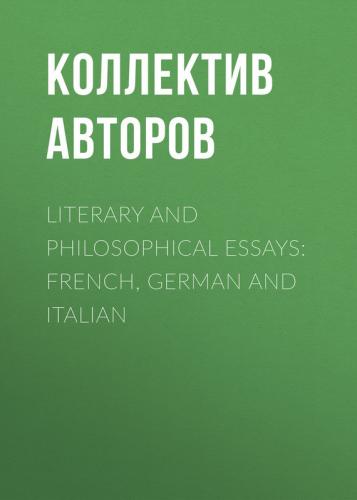In viewing these intestine and civill broiles of ours, who doth not exclaime, that this worlds vast frame is neere unto a dissolution, and that the day of judgement is readie to fall on us? never remembering that many worse revolutions have been seene, and that whilest we are plunged in griefe, and overwhelmed in sorrow, a thousand other parts of the world besides are blessed with happinesse, and wallow in pleasures, and never thinke on us? whereas, when I behold our lives, our licence, and impunitie, I wonder to see them so milde and easie. He on whose head it haileth, thinks all the Hemispheare besides to be in a storme and tempest. And as that dull-pated Savoyard said, that if the seelie [Footnote 31: Simple.] King of France could cunningly have managed his fortune, he might verie well have made himselfe chiefe Steward of his Lords household, whose imagination conceived no other greatnesse than his Masters; we are all insensible of this kind of errour: an errour of great consequence and prejudice. But whosoever shall present unto his inward eyes, as it were in a Table, the Idea of the great image of our universall mother Nature, attired in her richest robes, sitting in the throne of her Majestic, and in her visage shall read so generall and so constant a varietie; he that therein shall view himselfe, not himselfe alone, but a whole Kingdome, to be in respect of a great circle but the smallest point that can be imagined, he onely can value things according to their essentiall greatnesse and proportion. This great universe (which some multiplie as Species under one Genus) is the true looking-glasse wherein we must looke, if we will know whether we be of a good stamp or in the right byase. To conclude, I would have this worlds-frame to be my Schollers choise-booke. [Footnote: Book of examples] So many strange humours, sundrie sects, varying judgements, diverse opinions, different lawes, and fantasticall customes teach us to judge rightly of ours, and instruct our judgement to acknowledge his imperfections and naturall weaknesse, which is no easie an apprentiship: So many innovations of estates, so many fals of Princes, and changes of publike fortune, may and ought to teach us, not to make so great accompt of ours: So many names, so many victories, and so many conquests buried in darke oblivion, makes the hope to perpetuate our names but ridiculous, by the surprising of ten Argo-lettiers, [Footnote: Mounted Bowmen.] or of a small cottage, which is knowne but by his fall. The pride and fiercenesse of so many strange and gorgeous shewes: the pride-puft majestie of so many courts, and of their greatnesse, ought to confirme and assure our sight, undauntedly to beare the affronts and thunder-claps of ours, without feeling our eyes: So many thousands of men, lowlaide in their graves afore us, may encourage us not to feare, or be dismaied to go meet so good companie in the other world, and so of all things else. Our life (said Pithagoras) drawes neare unto the great and populous assemblies of the Olympike games, wherein some, to get the glorie and to win the goale of the games, exercise their bodies with all industrie; others, for greedinesse of gaine, bring thither marchandise to sell: others there are (and those be not the worst) that seek after no other good, but to marke how wherefore, and to what end, all things are done: and to be spectators or observers of other mens lives and actions, that so they may the better judge and direct their owne. Unto examples may all the most profitable Discourses of Philosophic be sorted, which ought to be the touch- stone of human actions, and a rule to square them by, to whom may be said,
– quid fas optare, quid asper
Vtile nummus habet, patriae charisque propinquis
Quantum elargiri deceat, quem te Deus esse
lussit, et humana qua parte locaius es in re.
Quid sumus, aut quidnam victuri gignimur.
What thou maiest wish, what profit may come cleare,
From new-stampt coyne, to friends and countrie deare
What thou ought'st give: whom God would have thee bee,
And in what part mongst men he placed thee.
What we are, and wherefore,
To live heer we were bore.
What it is to know, and not to know (which ought to be the scope of studie), what valour, what temperance, and what justice is: what difference there is betweene ambition and avarice, bondage and freedome, subjection and libertie, by which markes a man may distinguish true and perfect contentment, and how far-forth one ought to feare or apprehend death, griefe, or shame.
Et quo quemque modo fugiatque. feratque laborem.
How ev'ry labour he may plie,
And beare, or ev'ry labour flie.
What wards or springs move us, and the causes of so many motions in us: For me seemeth, that the first discourses, wherewith his conceit should be sprinkled, ought to be those that rule his manners and direct his sense; which will both teach him to know himselfe, and how to live and how to die well. Among the liberall Sciences, let us begin with that which makes us free: Indeed, they may all, in some sort stead us, as an instruction to our life, and use of it, as all other things else serve the same to some purpose or other. But let us make especiall choice of that which may directly and pertinently serve the same. If we could restraine
